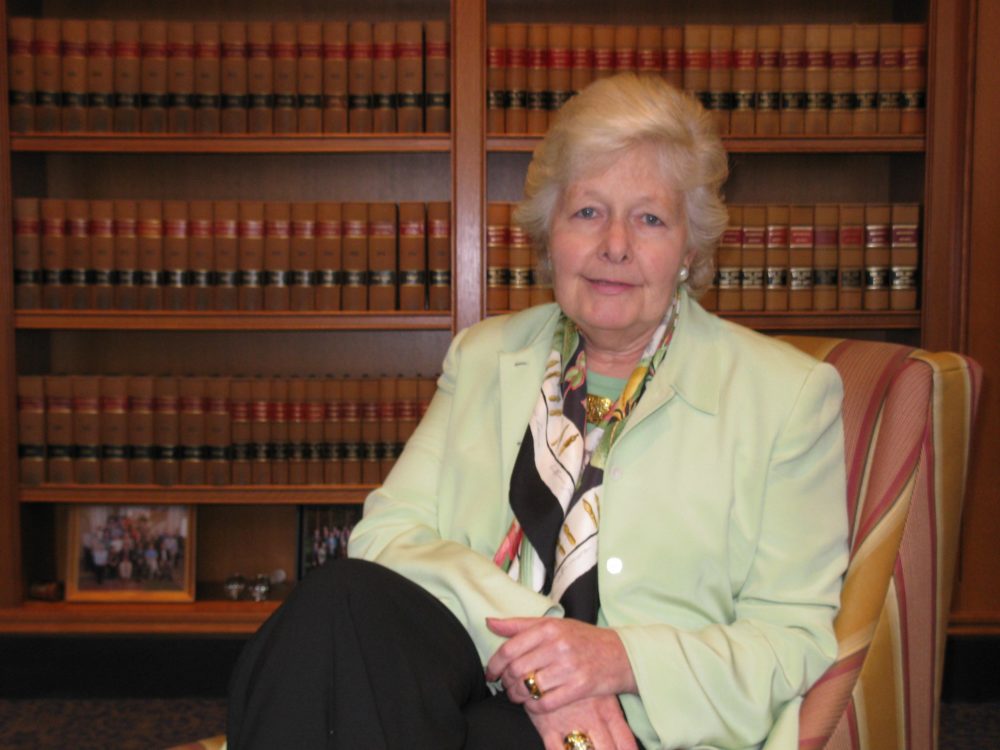Advertisement
The Philosophy Of 'Goodridge' And Justice Marshall
Resume
"All people are born free and equal and have certain natural, essential and unalienable rights... Equality under the law shall not be denied or abridged because of sex, race, color, creed or national origin."
The opening lines of the Massachusetts constitution. Margaret Marshall can quote them from memory. They are among the words that form the body of law that she says compelled her to write the sweeping 2003 Goodridge v. Department of Public Health decision that legalized same-sex marriage in Massachusetts.
"The Massachusetts Constitution affirms the dignity and equality of all individuals," she wrote. "It forbids the creation of second-class citizens. In reaching our conclusion we have given full deference to the arguments made by the Commonwealth. But it has failed to identify any constitutionally adequate reason for denying civil marriage to same-sex couples."
With characteristic understatement, Marshall adds in the next paragraph: "We are mindful that our decision marks a change in the history of our marriage law."
Marshall's critics call it an irreparable change for the worse. Her admirers view it as a monumental step forward. Both agree, however, that the first woman and first immigrant chief justice of the state's highest court is, indeed, history-making.
Marshall recently announced she will retire from the bench by late October.
While she weathers the flurry of analysis of her legal legacy, she chafes at the popular conclusion that it is the Goodridge decision that defines her tenure on the court. She recently granted Radio Boston an extended, intimate interview about her life, influences, rewards and regrets. We discovered her thinking behind the Goodridge decision and her view on about power and the limits of the rule of law.
Guest:
- Margaret Marshall, chief justice of the Supreme Judicial Court of Massachusetts
Related: